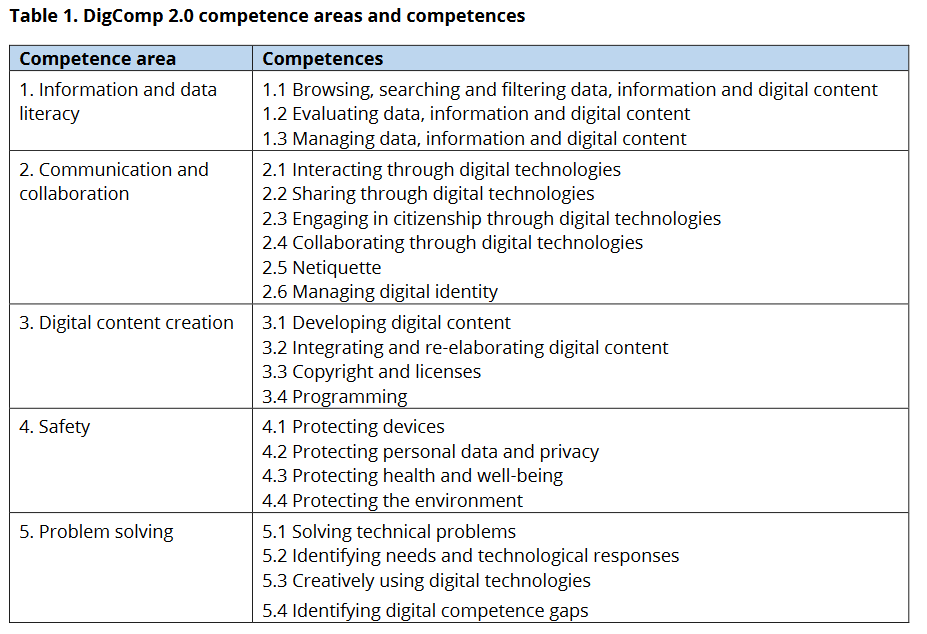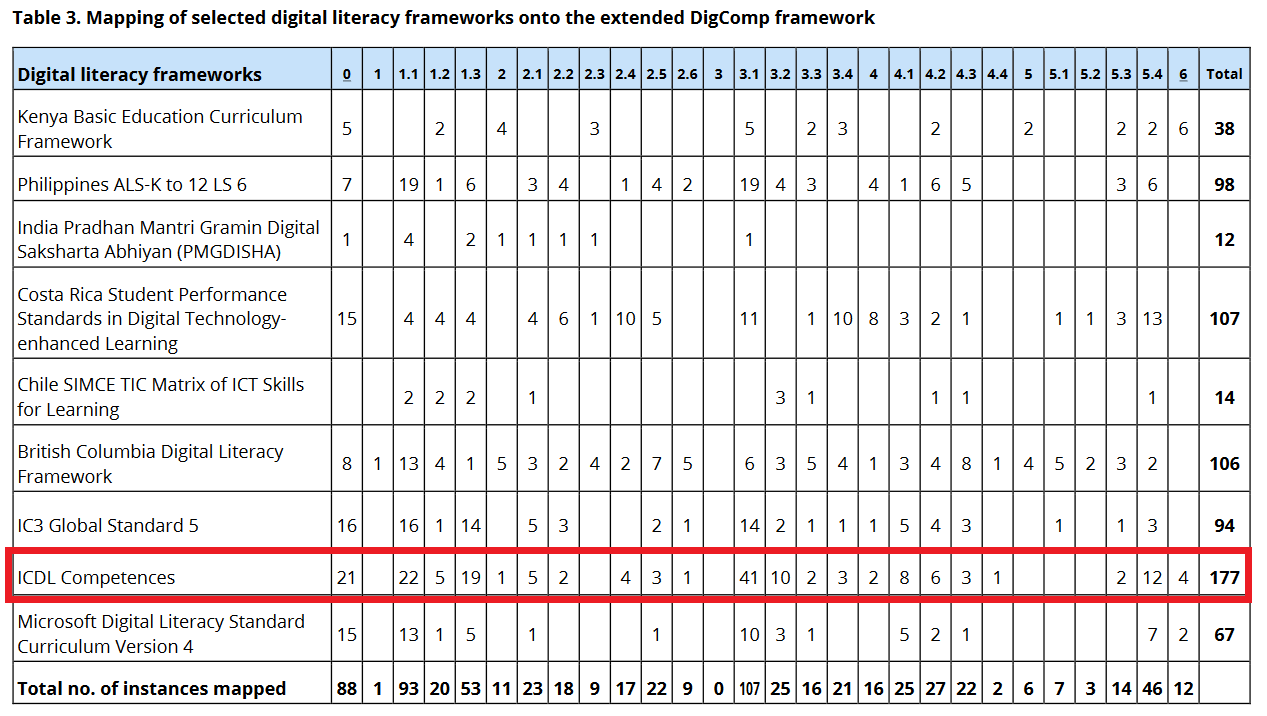Publications & Recognition
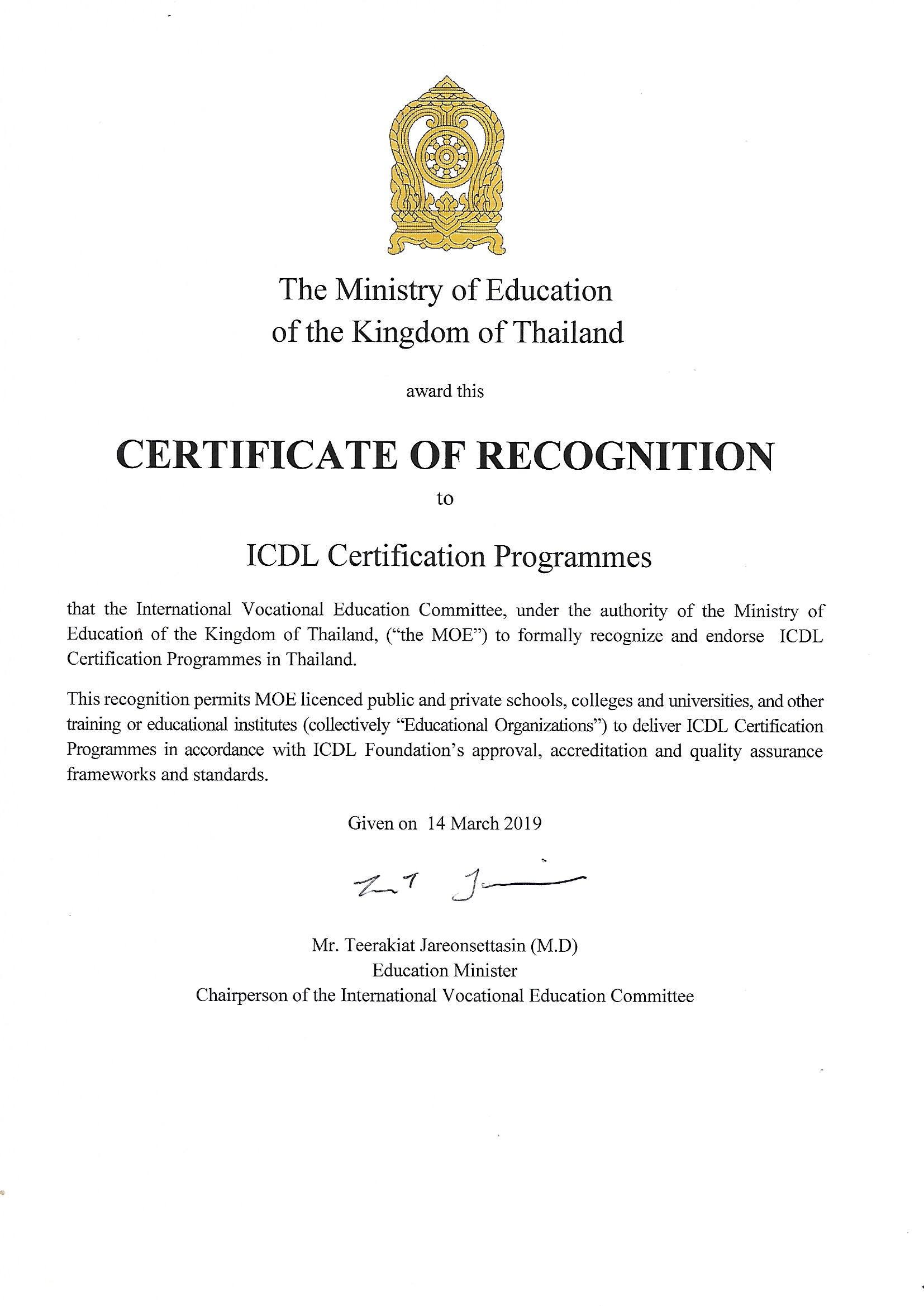
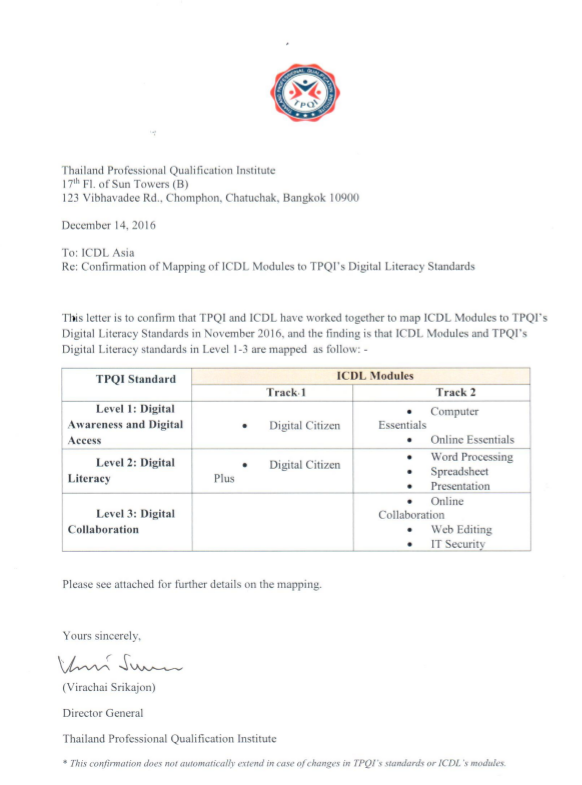
UNESCO Paper On Digital Literacy Standards
A Global Framework of Reference on Digital Literacy Skills for Indicator 4.4.2
The objective of the Digital Literacy Global Framework (DLGF) project is to develop a methodology that can serve as the foundation for Sustainable Development Goal (SDG) thematic Indicator 4.4.2: “Percentage of youth/adults who have achieved at least a minimum level of proficiency in digital literacy skills”.
The perception & reality of digital skills
ICDL Europe’s ‘Perception & Reality’ report brings together the results of research into self-perception of digital skills, and the reality, measured with a practical test. The new report includes findings from studies conducted in Singapore and India, reinforcing the original findings from five European countries.
ICDL Recognition Around the World – Some Examples:
Thailand: ICDL has been adopted by government as part of the Digital Thailand and Thailand 4.0 initiative. ICDL is accredited by the Thailand Professional Qualifications Institute, a state agency, and tens of thousands of civil servants have been certified in partnership with the Office of the Civil Service Commission.
Thailand: ICDL is the only digital literacy standard to be formally recognised and endorsed by the Ministry of Education for use in all licensed schools, universities and training / education institutes.
United Kingdom: ICDL is mapped to the Regulated Qualifications Framework (RQF), which replaced the Qualifications & Credit Framework and the National Qualifications Framework in October 2015.
Malta: ICDL has been mapped to the Malta Qualifications Framework since 2010. The mapping was updated in 2013 to reflect ‘New ECDL’.
Kenya: The Technical and Vocational Education and Training Authority (TVETA) accredited ICDL Africa as a ‘Foreign Examination Body’ and approved the ICDL programme as a certificate level qualification in the TVET system in Kenya.
South Korea: Korea Productivity Centre, a government agency responsible for national economic development, adopted ICDL to provide international certification of digital skills.
Australia: ICDL is mapped to the Australian Qualifications Framework and the Queensland Certificate of Education. The intended target audience is vocational education.
USA: The American Council on Education’s College Credit Recommendation Service (ACE CREDIT®) has evaluated and recommended college credit for five of ICDL modules. Similarly, ICDL programme received a Seal of Alignment from ISTE, a membership organisation committed to educational technology based in the United States.
France: Compte Personnel de Formation (personal training account), France
ICDL is mapped to the National Register of Professional Qualifications, meaning that candidates can access funding under the Compte Personnel de Formation (CPF), an initiative that is open to millions of French workers and job-seekers.
ACE CREDIT Recommendation: The American Council on Education’s College Credit Recommendation Service (ACE CREDIT®) has evaluated and recommended college credit for five of ICDL Foundation’s modules. Founded in 1918, ACE is the major coordinating body for all the United States’ higher education institutions, representing more than 1,600 college and university presidents and more than 200 related associations nationwide. It provides leadership on key higher education issues and influences public policy through advocacy.
For more than 30 years, colleges and universities have trusted ACE CREDIT to provide reliable course equivalency information to facilitate their decisions to award academic credit. For more information, visit the ACE CREDIT website at www.acenet.edu/credit.
ACE CREDIT connects workplace learning with colleges and universities by helping adults gain access to academic credit at colleges and universities for formal courses and examinations taken in the workplace or other settings outside traditional higher education.
Singapore: SkillsFuture Singapore, a statutory board under the Ministry of Education, has embedded ICDL in its Workforce Skills Qualification Framework and provides significant funding to employers and employees for ICDL certification. Singapore National Employers Federation, the National Trades Union Congress and many TVET providers deliver ICDL training and certification for workforce development. ICDL Asia has also partnered with professional bodies such as ACCA Singapore and the Singapore Academy of Law to provide contextualised ICDL programmes for their members.
Rwanda: The government of Rwanda, through its National Digital Talent Policy has approved ICDL for central and local government employees. The MoU between ICDL Africa and the Ministry of ICT provides for the certification of 85,000 government employees.
South Africa: ICDL has been widely adopted in South Africa in the education and government sector. The Western Cape Government integrated ICDL with its Cape Access programme.
Vietnam: The Ministry of Information and Communications has formally approved ICDL under Circular No. 3 and recommended that state university students and civil servants be certified with ICDL.
ISTE Seal of Alignment: The ISTE Seal of Alignment shows that ICDL has been independently reviewed by ISTE and was found to be aligned with the ISTE Standards. ICDL received the Seal of Alignment in May 2017.
ISTE is a membership organisation that is committed to educational technology. Based in the United States, but active around the world, it maintains the ISTE Standards to provide a framework that helps educators transform learning with technology. Where learning resources and programmes are judged to be aligned with the ISTE Standards, they can be recognised with the ISTE Seal of Alignment.
ICDL addresses all the elements of the Readiness level of the 2016 ISTE Standards for Students, and is one of only two organisations to do so.
Poland: ICDL is the only international digital skills certification listed explicitly in the Polish Ministry of Education’s funding guidelines for 2014 to 2020. The guidelines describe qualifications that can be used in projects funded by the European Social Funds (ESF) in Poland. ESF financed projects have reached tens of thousands of candidates.
Poland: A detailed mapping of ICDL to DigComp was carried out in Poland, resulting in the initiative being featured in the EU’s Joint Research Centre DigComp Guidelines as an implementation example. ICDL is the only truly international digital skills certification to be featured in this way.
Romania: Students in Romania can choose to meet digital literacy requirements for their Baccalaureate exam using ICDL. This gives them the chance to gain an internationally recognised certification.
UNESCO: A UNESCO report used DigComp to assess a range of digital competence tools. For each tool, it compared the learning outcomes against the 21 DigComp competence areas. Of all the tools assessed, ICDL had the highest number of learning outcomes mapped to DigComp.
ICDL has been recognised around the world and referenced in reports by governments and international organisations.
ICDL programmes are adopted by a few governments in Asia which includes:
SINGAPORE – SkillsFuture Singapore (SSG)
THAILAND – Thailand Professional Qualification Institute (TPQI)
VIETNAM – Ministry of Information and Communications (MIC) & Ministry of Education and Training (MOET)
PHILIPPINES – Department of Information and Communications Technology (DICT)
INDIA – National Skill Development Corporation (NSDC)
MALAYSIA – Department of Skills Development (DSD – MOHR)
CHINA – National Centre for Educational Technology (NCET)
Case Studies from Universities and Other Education Institutions:
Coventry University, UK
ICDL is available to students at Coventry University in the UK. The programme is used to help students prepare for the labour market. A case study is available here.
Bocconi University, Italy
A project at Bocconi University in Italy required students to take ICDL certification tests as part of their Computer Skills for Economics and Computer Skills for Law courses. More information is available here.
ENSOA, France
Students at France’s National School for Active Non-Commissioned Officers have the opportunity to use ICDL to evaluate and certify their digital skills. More information is available here.
